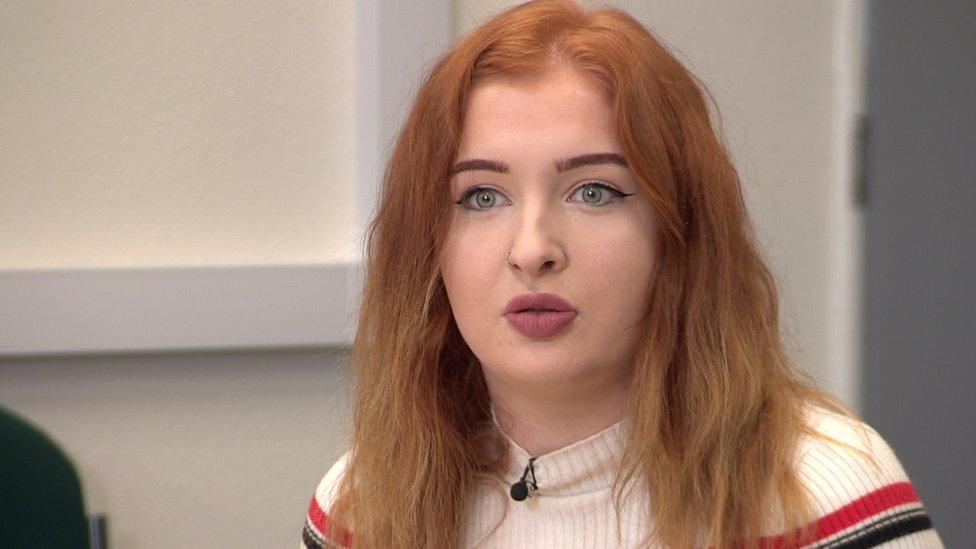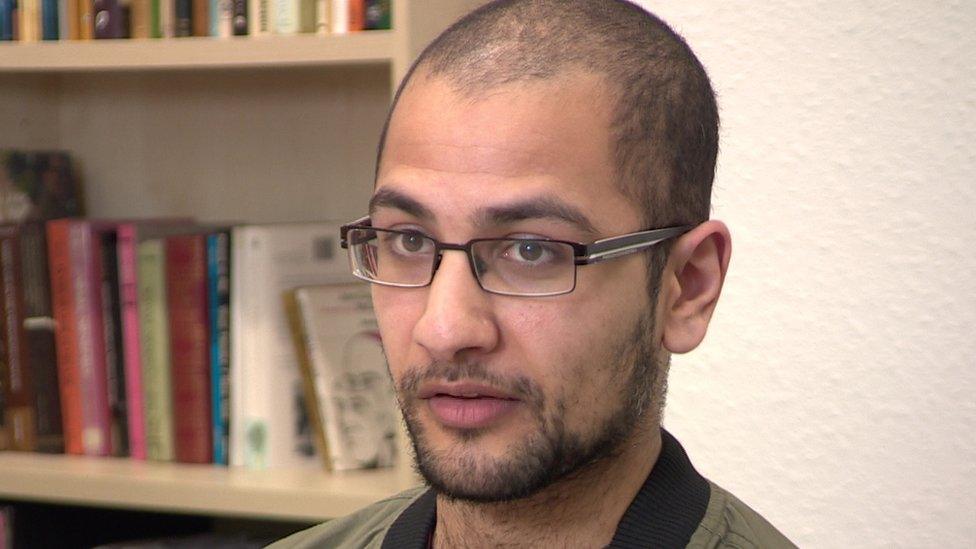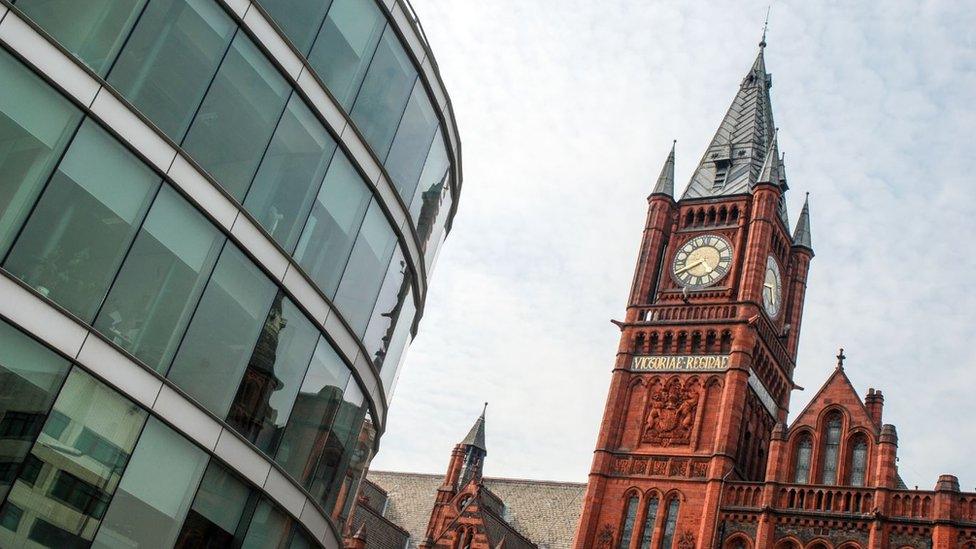Northern Ireland and the 'brain drain'
- Published
- comments

Many students studying in the UK and Republic of Ireland are unhappy with the political stalemate at home
It used to be known as the "brain drain".
The phenomenon during the Troubles whereby Northern Ireland's brightest and best students would leave to study elsewhere and never return.
Now, with more than 600 days without a government and Brexit fast approaching, are students who study elsewhere in the UK and the Republic of Ireland less likely to settle back in Northern Ireland?
I travelled to Liverpool to ask students from home for their views on the political stalemate.
Katherine Parke, from Londonderry, has been in Liverpool since 2012.
"I came here to get out of my comfort zone and to broaden the horizons a bit," she said.
'Stuck in the past'
A politics student, who is currently completing a master's degree, would the ongoing failure of Stormont influence where she settles in the future?
"It would be the opposite," she said.
"It would have a sort of a galvanising effect. I've come here and had all these opportunities."

Stuck in the past is how Lucy Buller sees Northern Ireland
That's not how Lucy Buller sees it.
Originally from Holywood in County Down, she is in her first year studying Geography.
"I just feel Northern Ireland is stuck in the past and stuck in such an old traditional way and we can't move out of that," she said.
"We can't think about the future because we're so stuck in the past."
'I'd love to settle in NI'
'Lack of opportunities'
For other students, the lack of an executive to push forward an economic programme was the biggest issue.
Asa Mallon, from Lisburn, feels that's where the shame should be felt by politicians.
"If they're not looking after us and creating jobs for us then that's the real tragedy," he said.

It's all about the jobs for Jacob Hussein
Jacob Hussein was born in Birmingham, but moved to the Shankill area of Belfast with his mum and dad at the age of two.
His dad is Pakistani and his mum considers herself to be British Asian: "I'm the son of a first-generation migrant and my dad came to Belfast for the opportunities and now as a young person I'm leaving because of the lack of opportunities."
'Progressive place'
Prof Peter Shirlow is from Lisburn and lectured at Queen's University for years. He's now heading up the Centre for Irish Studies at Liverpool University.
He attended the same university in the 1980s.
"Back then students came here to study to take those skills and talents back home, but I now get the impression that's not the case," he said.
"They come here, they feel more comfortable here, they sense that this is a very progressive place and that it's a place you'd get a higher paid job and the availability of work as well.
"I get a sense now that the people who come here are very rooted and they sense this is the place they want to be."

Liverpool is a popular destination for NI students
Prof Shirlow feels the last 10 years in particular in Northern Ireland will influence today's undergraduates in Liverpool.
"This a comfortable place to live," he said.
"We don't have the legacy of the conflict, we don't have the proxy war about victims, no suspended parliament, no questions about RHI and that is one thing you do get with young people - they're fed up with the constant reference to the past."
Over in the department of electrical engineering and electronics, Belfast native Prof Alan Marshall believes students in Liverpool are much better placed for job opportunities.
"The range of opportunities for ICT-type students is much wider and broader than Northern Ireland from the automotive industry, to the aerospace industry, the defence industry, the security industry, the opportunities are much, much wider," he said.
The verdict from the students is clear - ultimately it's the economic climate, rather than the political one, which will influence their decision on where to call home.
For the full story, watch BBC Newsline on Wednesday 9 October at 18:30 BST.